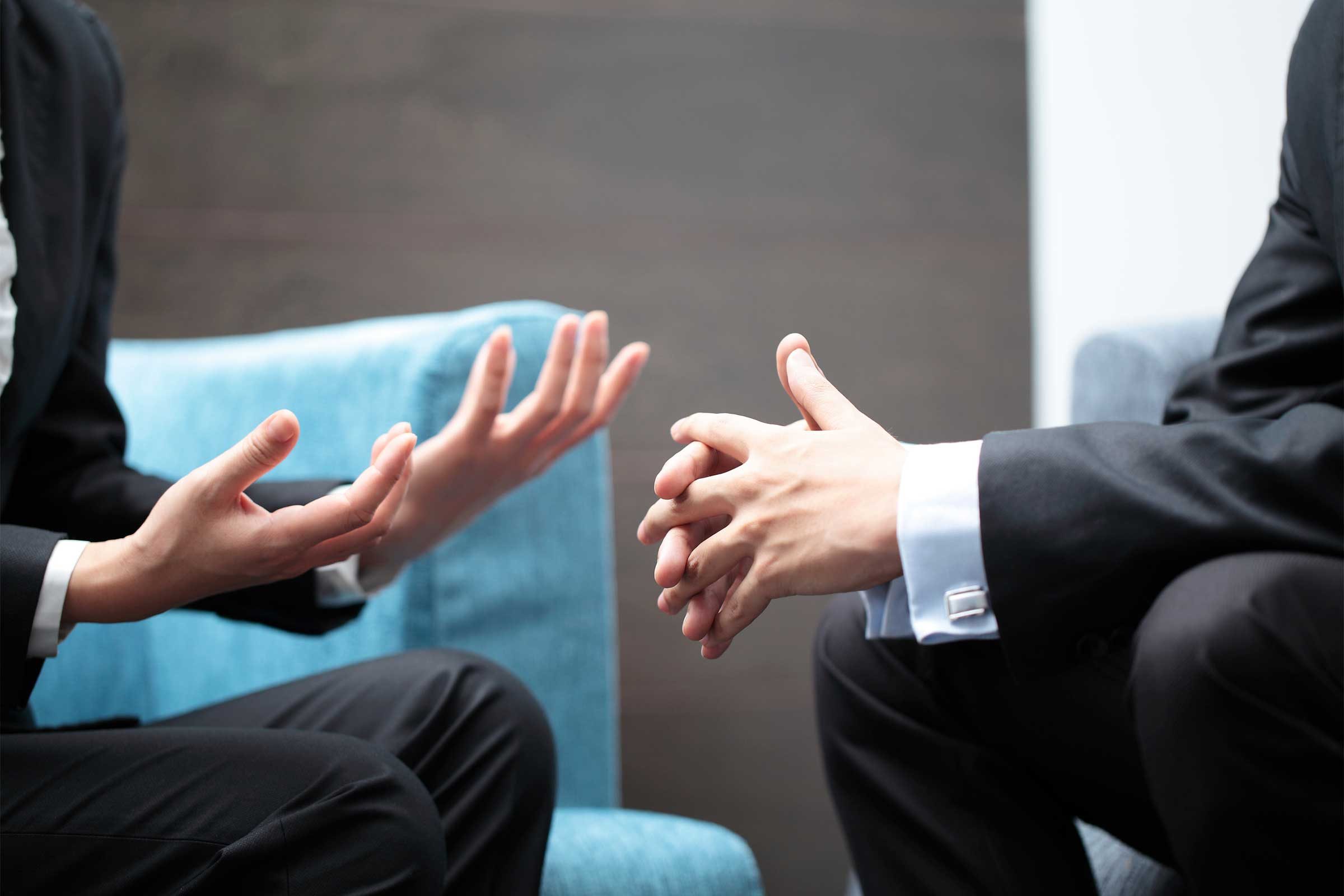
You don’t pay attention to body language
If you’re oblivious to the reactions of people around you, it could lead to trouble. “Insensitive people tend to be blind to social subtleties and innuendos. They don’t seem to understand that they’re actually insensitive, so they miss the cues that would normally send a message that they should alter their behavior,” says Howard Gurr, PhD, DCC, a psychologist in the New York City area. If it seems like your friends are frequently standoffish after a conversation or are giving you funny looks that seem out of place to you, that could be a sign you’ve said something inappropriate or offensive. Instead of ignoring the looks, try asking them if they’re OK or if you’ve said something wrong. Don’t miss these other easy ways to be nicer to people.

You raise your voice
Take a step back and think about your last few conversations; if you remember doing the majority of the talking, you likely acted insensitively. “Insensitive people resort to standard techniques to get other people to hear them, which is only more of the same and frustrating because it doesn’t work,” says Gurr. Try to pay closer attention to your own behavior during a conversation; any time realize you’ve raised your voice or interrupted others to get your point across, stop yourself and make a mental note to avoid it next time it’s your turn to speak. (Learn how to tell if you’re a bad listener.)

You aren’t open to other opinions
“Insensitive people are more involved in themselves; they’re threatened by other people’s needs or thoughts because they think their own needs aren’t going to be met,” says Gurr. Remind yourself that your opinion isn’t the only right one. Instead of expressing yourself at all costs, try asking other people what they think about something; this will help keep the conversation a two-way conversation instead of all about you, you, you. Don’t miss these 12 signs you’re dealing with a narcissist.

You get defensive
There’s a time and place for getting defensive, but it shouldn’t be something you resort to in every interaction. “People aren’t insensitive because they’re malicious or even purposeful in their intent. They’re just highly anxious about how they’re coming across to other people and are trying to protect themselves,” says Gurr. “They get so caught up in defending themselves they don’t see anything else.” Next time you find yourself explaining something away or defending something you’ve said or done, take a step back and ask yourself if your defensiveness is warranted or misplaced. Instead, try these surprising habits that boost your empathy.

You can’t remember people’s names
Insensitive people often have trouble remembering new names because they aren’t paying attention in the first place. “During the initial handshake or greeting they are so wrapped up in what they need to say first that they don’t hear the name of the person they’re talking to; it just doesn’t register,” says Gurr. Instead of worrying about what someone new is thinking about you, trust your ability to make a good first impression (and forgetting their name right off the bat isn’t that). Focus less on what your first words will be and let the conversation take its natural flow. Learn how to tell if you’re a conversational narcissist.

You don’t think (days) before you speak
If you know you’ll be having a particular conversation with a friend, partner, or loved one a few days down the line, it’s a good idea to think about what points you want to get across ahead of time. This will help you choose the right words and act in a way that won’t hurt feelings. (Use these magic phrases to make any conversation less awkward.)

You ignore the “Golden Rule”
“Do unto others as you would have others do unto you” is perhaps the simplest way to reign in your insensitivity. If a comment comes to mind that you wouldn’t want someone else to say to you, don’t say it. Here’s how to give constructive criticism without hurting anyone’s feelings.

You don’t notice the faces around you
A good clue that you’re monopolizing the conversation and being insensitive to your friend’s thoughts and feelings is if they start to look bored, uninterested, uneasy, or try to change the subject. “A speaker who is insensitive doesn’t recognize those signals, they just keep going and aren’t focused at all on the person they’re talking to,” says Gurr. Look your friend in the eye while you’re talking and try to remain aware and in the moment instead of zoning out. Check out these other things good listeners always do in conversations.

You can’t control your attitude
If you always need to have the last word, you may resort to aggressive speaking or get angry to achieve it. “Learn to say things in a way that you get your point across but don’t hurt someone else in the process,” says Gurr. Zero in on the types of words you use and tone of your voice when speaking, especially with something you feel passionate about. (Here’s how to win an argument with someone who thinks they’re always right.)

You don’t act present
Being in the moment can help you determine what comments or actions are actually necessary and help you avoid saying or doing whatever’s on your mind. It’s OK to think before you speak instead of reacting immediately. Consider what feedback, input, and guidance will add value to the conversation or task at hand, according to Jill Tomac, founder of the Leadership Resource Group on mariashriver.com. Here are 11 more easy ways to be mindful every day.